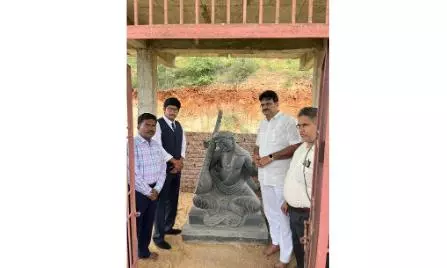The ongoing social media call to ‘Boycott Turkey’ has impacted businesses significantly. Not only has there been a rising rate of travel cancellations, but there is also outrage against the use of imported goods from Turkey, including apples and marbles.
The ‘Boycott Turkey’ call comes after Turkey and Azerbaijan openly expressed support for Pakistan during Operation Sindoorwhich was carried out in response to the Pahalgam attack on civilians.
This was exacerbated by alleged reports that Turkey has provided drones, arms, and support to Pakistan during the India-Pakistan conflict. This has fueled public anger and strengthened the ‘Nation’s First’ sentiment across India.
Here is a look at how much India and Turkey trade together and how it can impact Turkey’s commercial business.
India-Turkey Trade at a Glance
India has a trade surplus with Turkey as it exports more than it imports. According to Business Standardduring April–February 2024–25, India’s exports to Turkey reached $5.2 billion, compared to $6.65 billion in 2023–24. This represents approximately 1.5% of India’s total exports, valued at $437 billion.
For the same period, India’s imports from Turkey amounted to $2.84 billion, down from $3.78 billion in 2023–24. This constitutes roughly 0.5% of India’s total imports of $720 billion.
India mainly exported mineral fuels, auto parts, machinery, pharmaceuticals, and cotton. However, imports from Turkey included mineral oil, gold, marble, apples, vegetables, cement, and chemicals. Turkey is one of the largest suppliers of apples to India.
Based on a June 2022 press release by the Indian Ministry of External Affairs, Indian companies are majorly present in Turkey’s automobile, pharmaceutical, and IT sectors, while Turkish businesses have a presence in India’s infrastructure and engineering sectors.
Times of India reported that in April 2025, four Indian companies invested approximately $6 million in Azerbaijan and Turkey out of a total of $6.8 billion in outbound foreign direct investment (FDI), with the majority of the investments targeting countries like the Netherlands.
India Refusing Turkish Apples
According to OEC, India imported approximately $92.8 million worth of apples from Turkey in 2023, out of a total apple and pear import value of around $376 million.
Years reported that Pune traders have decided to cease purchasing Turkish apples. Instead, they are sourcing apples from Himachal, Uttarakhand, Iran, and other regions.
Maharashtra Deputy Chief Minister Devendra Fadnavis also supported the move. He said, “I congratulate all traders who have decided to boycott imports from Turkey. At this juncture, ‘nation first’ should be our stand.”
According to Business Today, the boycott is expected to have a significant impact on Pune’s fruit market, given Turkish apples usually contribute to a seasonal turnover ranging from ₹1,000 crores to ₹1,200 crores. Along with this, travel to Turkey has also taken a toll since the boycott started
In parallel, the Udaipur Marble Processors Association, representing 125 marble firms, has urged the government for an immediate halt to Turkish marble imports, highlighting national security concerns over economic gains, according to media reports.
According to StoryboardTurkey currently supplies approximately 70 percent of India’s imported marble — around 14 to 18 lakh tonnes annually, worth between ₹2,500 to ₹3,000 crore. Kapil Surana, President of the association, emphasized this stance in a letter to Prime Minister Narendra Modi, saying, “Business cannot be bigger than the nation.”
Turkey to Lose Indian Travellers
Indian traders at the Confederation of All India Traders (CAIT) have also urged a nationwide travel boycott. Praveen Khandelwal, CAIT Secretary General and Member of Parliament for Chandni Chowk, explained that a travel boycott could significantly harm the economies of Turkey and Azerbaijan, particularly their tourism sectors. According to 2024 figures, Turkey welcomed around 62.2 million foreign tourists, including 300,000 from India, contributing to $61.1 billion in tourism revenue. Indian tourists alone spent about $291.6 million. A boycott by Indian tourists could lead to a direct financial loss of this amount.
In support of national sentiments, flight bookings to these two nations have dropped by 60 percent over the past week, while cancellations have jumped 250 percent. Many online travel agencies — EaseMyTrip, Makytripand ClearMyTrip — have issued an advisory to avoid non-essential visits to Turkey.
The travel company EaseMyTrip said, “In view of the terror attack in Pahalgam on April 22… and war-like situations between India and Pakistan, it is disheartening to note that Turkey and Azerbaijan have extended their support to Pakistan.”
Despite the boycotts, Turkey’s President seems unaffected by this. The Turkish President replied to Pakistan’s PM Shehbaz Sharif on X by calling him ‘precious brother’ and showing support.
“My precious brother, the brotherhood between Turkey and Pakistan, which is enjoyed by very few nations in the world, is one of the best examples of true friendship. As Turkey, we attach great importance to the peace, tranquility and stability of Pakistan. We appreciate the sensible, patient policy of the Pakistani state, which prioritizes dialogue and compromise in resolving disputes,” he wrote.
India Helped Turkey in the Past
There is no official announcement to stop trade and business between the two countries, but netizens have created a buzz on social media, showing their support for India and voicing their opposition to terrorism.
Although Turkey has always supported Pakistan and maintains good relations with it, India and Turkey have also maintained cordial relations in the past. In response to the February 6, 2023, earthquakes in southern Turkey, India launched a humanitarian mission called ‘Operation Dost,’ which was one of the earliest foreign aid missions to reach Turkey.
Over 250 trained personnel, along with specialized equipment and relief materials, were airlifted in six C-17 military aircraft. They actively participated in rescue efforts and provided medical treatment, including life-saving surgeries.






